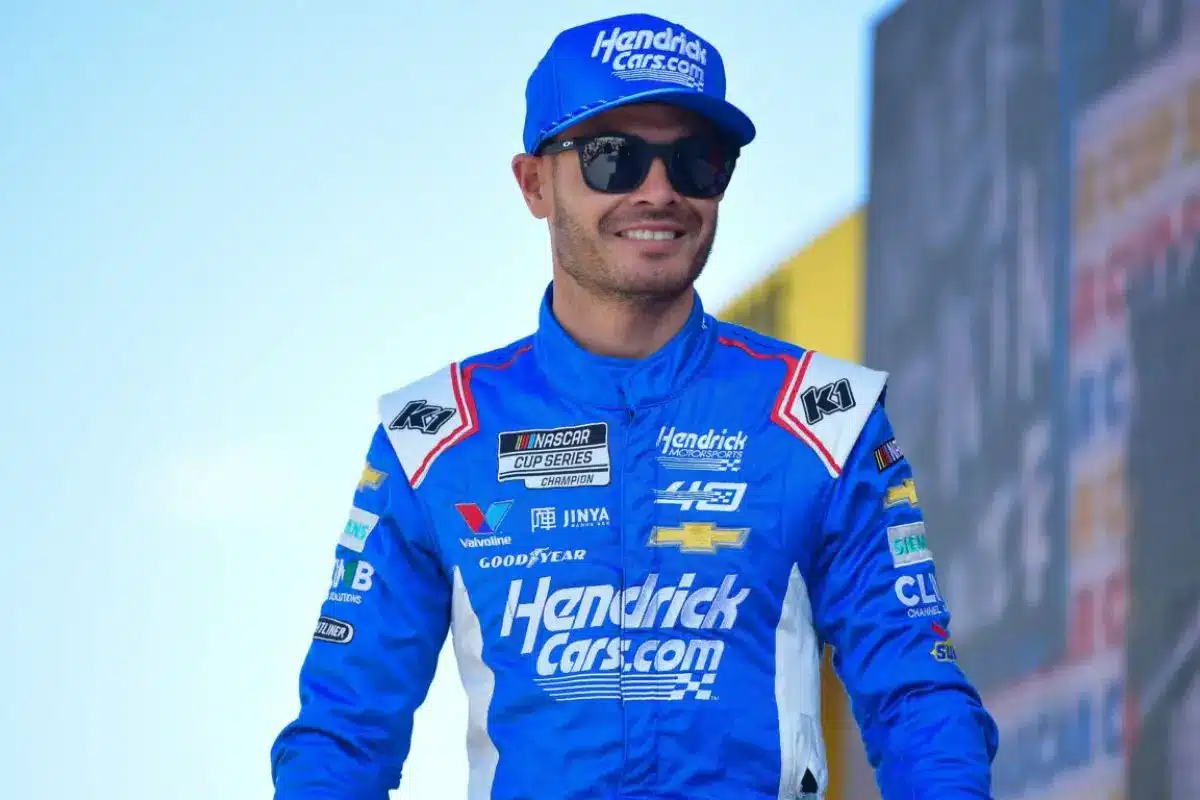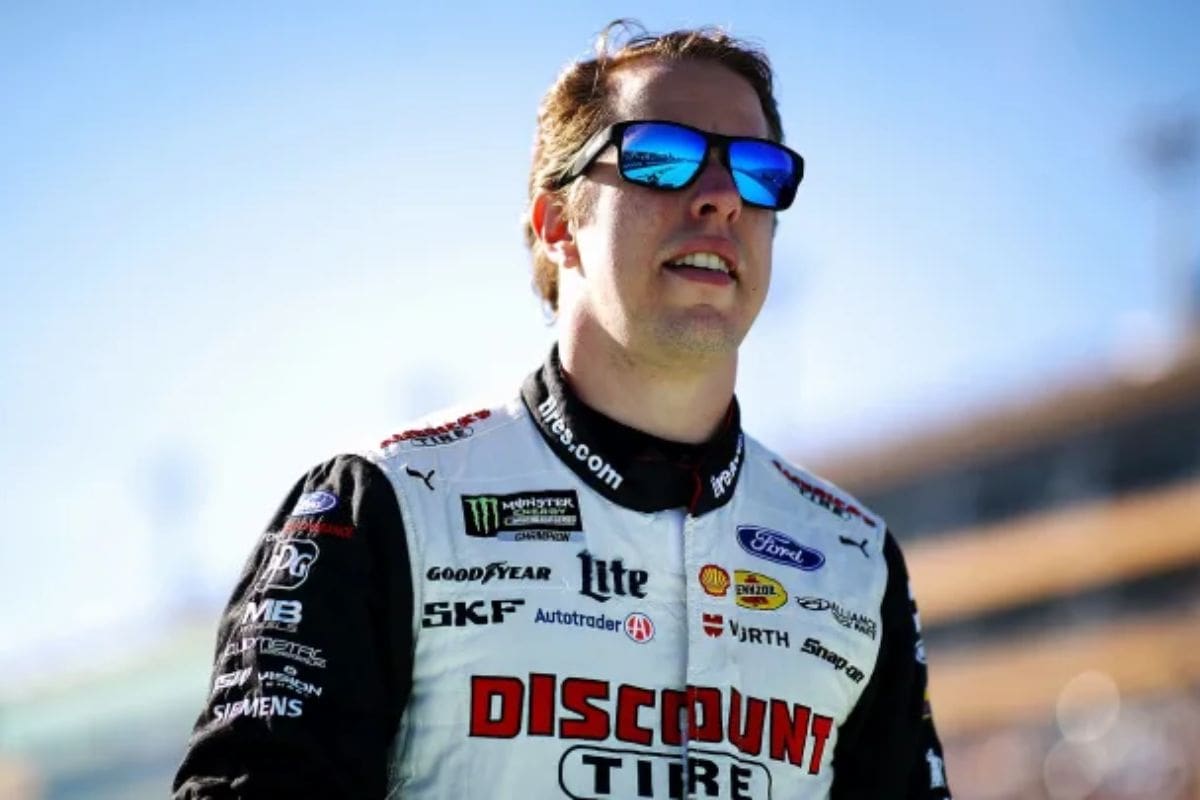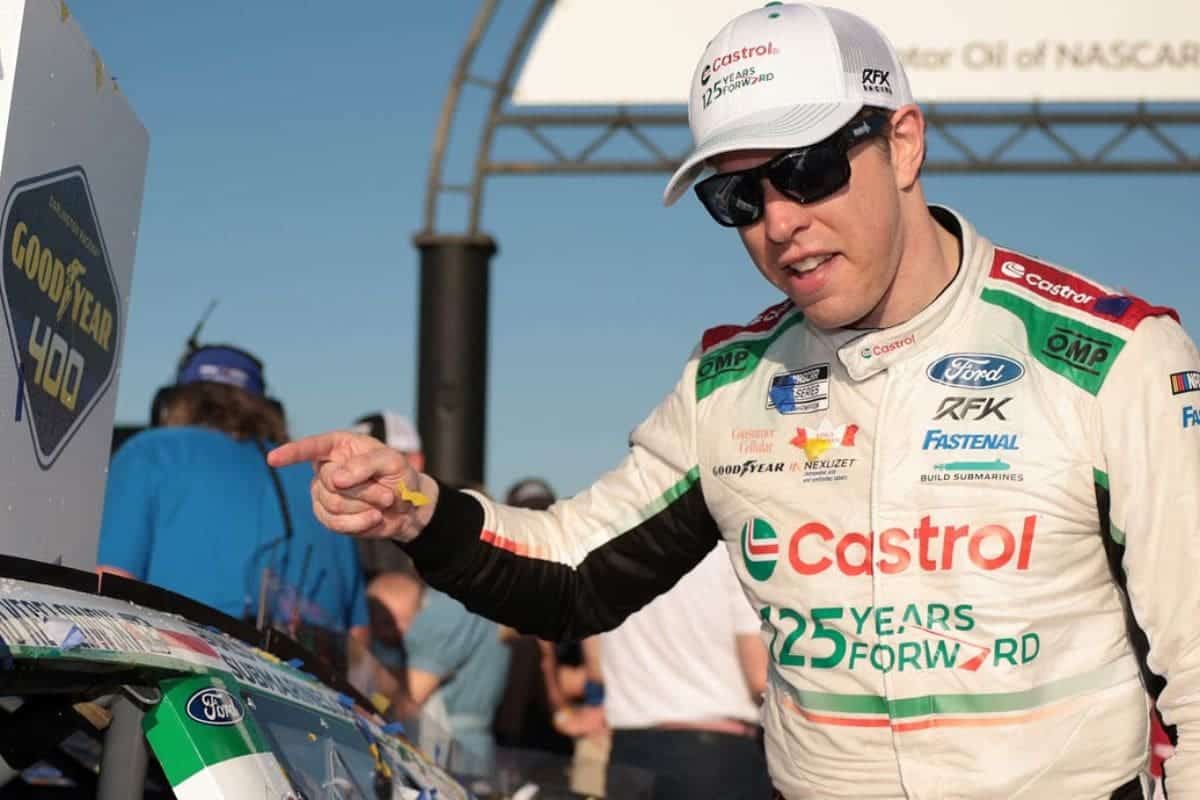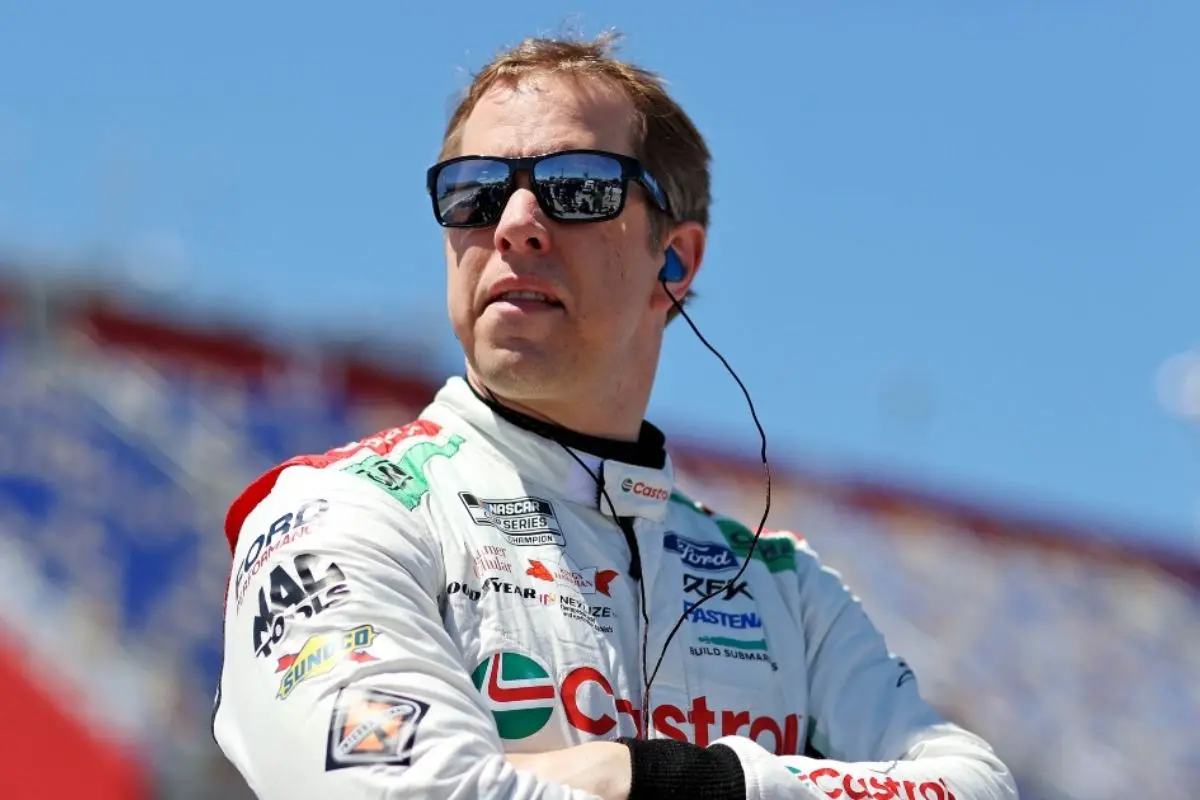Brad Keselowski’s Emotional Post-Race Confession: Brad Keselowski‘s recent emotional post-race confession reveals the weight of disappointment and the profound resilience that characterizes elite athletes in NASCAR. His assertion, “We’ll come back,” serves as a compelling demonstration of his commitment to growth and improvement, even in the face of adversity. This sentiment raises critical questions about the psychological toll of competitive sports and the strategies athletes employ to rebound from setbacks.
Key Highlights
- Brad Keselowski expressed disappointment after his Bristol finish, reflecting on the emotional toll of his elimination from the playoffs.
- He started the Bristol race in 23rd place and only managed to finish 26th, highlighting his struggles with pace.
- Keselowski’s post-race confession emphasized his commitment to improvement and determination to return stronger next season.
- The veteran racer acknowledged the unpredictable nature of NASCAR playoffs, which contributed to his challenging season.
- Despite setbacks, Keselowski remains optimistic about his future in racing, stating, “We’ll come back,” indicating resilience and hope.
Kyle Larson’s Dominating Performance and Playoff Update
In the wake of the round of 16 in the NASCAR Cup playoffs, Kyle Larson‘s commanding performance stands out as a pivotal moment in the season. Leading an astonishing 462 laps, Larson not only showed his driving skill but also set a new record as a Hendrick Motorsports driver. This remarkable feat highlights Larson’s growing dominance in the sport and emphasizes his tactical mastery on the track.
As he secured his position in the round of 12, Larson’s performance serves as a clear statement of intent, positioning him as a formidable contender for the championship title. His ability to maintain control and pace throughout the race reflects not just skill but also the effective teamwork and engineering that underpin his success. This victory is emblematic of a driver who has refined his craft and is now capitalizing on every opportunity.

While Larson thrived, the round of 16 also showed the volatility of the playoffs, where even seasoned veterans can find themselves at a disadvantage. Such dynamics create an exhilarating tension in the competition, emphasizing the critical need for consistency and resilience.
As the playoffs progress, Larson’s performance sets a high benchmark for his competitors, who must adapt and innovate to keep pace. The implications of this race extend beyond mere statistics; they signal a shift in momentum and the potential for Larson to emerge as a leading figure in the quest for the championship.
Veterans and Champions Eliminated from the Playoffs
The recent elimination of seasoned veterans and former champions from the NASCAR Cup playoffs highlights the unpredictable nature of the competition and the relentless pressure that drivers face. Among those unexpectedly ousted are Martin Truex Jr. and Brad Keselowski, both of whom have storied careers and considerable honors. Their departure from the playoff contention emphasizes a critical turning point in the season, where experience alone may not suffice for success.
Truex, a 2017 champion, has encountered a series of challenges that hampered his performance. Despite his skill on the track, the cumulative pressures of the playoffs seem to have overwhelmed his team, leading to an early exit.
Likewise, Keselowski, the 2012 Cup Series champion, expressed disappointment in his performance, reflecting the emotional toll that such eliminations can impose on veteran drivers. His post-race sentiments reveal a deep-seated desire not only to improve but to reclaim his status among the elite.
The presence of younger talent, such as Ty Gibbs and Harrison Burton, in the playoffs further complicates the narrative, as they symbolize a shifting landscape within NASCAR. These emerging drivers possess a fierce competitiveness that challenges the established order, creating an environment where even the most seasoned veterans must adapt or risk obsolescence.

Keselowski’s Playoff Struggles Begin in Atlanta and Watkins Glen
Struggling to gain momentum from the outset of the playoffs, Brad Keselowski‘s campaign faced considerable setbacks starting with the race in Atlanta. As the playoffs kicked off, Keselowski needed a strong performance to establish a foundational advantage. However, he finished a disappointing 19th, a result that not only hindered his point accumulation but also dampened his confidence heading into the next challenge.
Hoping to rebound at Watkins Glen, Keselowski’s aspirations were further dashed by a crash involving William Byron, which ultimately left him finishing 26th. This harrowing experience exacerbated his struggles, as he found himself -12 points behind the cutoff line heading into the final race of the Round of 16. Such a deficit created immense pressure, highlighting the precarious nature of playoff racing where every point counts.
These two races revealed critical vulnerabilities in Keselowski’s approach and execution. The Atlanta race, marked by a lack of tactical overtaking and poor pit stop timing, showcased the challenges he faced in adapting to the intense playoff atmosphere.
As Keselowski reflects on these early playoff trials, the urgent need for recalibration becomes evident. The upcoming races will demand not only skill but also a mental fortitude to recover from these setbacks.
Keselowski’s Disappointing Bristol Finish and Post-Race Reflection
Frequently facing challenges throughout the playoffs, Brad Keselowski encountered yet another setback with his disappointing finish at Bristol. Starting the race in 23rd position, Keselowski struggled to find the necessary pace, quickly dropping to 27th. Despite his efforts, he could only gain a single position by the end, concluding the race in 26th place. This result not only reflects the competitive nature of the playoffs but also emphasizes the importance of speed and strategy in achieving success.
In his post-race reflection, Keselowski expressed his frustration, stating, “Just didn’t have the pace. We wanna run better. We wanna run races and make deep runs in playoffs and be in the final four all those things. Obviously, anything short of that is disappointing. We’ll come back and charge up more for next year.” His acknowledgment of the need for improvement highlights a critical aspect of racing: resilience in the face of adversity.
Keselowski’s commitment to returning stronger serves as a reflection of his character. As he navigates through these setbacks, his determination signals that this season’s disappointments may very well lay the groundwork for future success.

News in Brief: Brad Keselowski’s Emotional Post-Race Confession
Brad Keselowski’s heartfelt reflection following his playoff elimination exemplifies the profound emotional challenges faced by drivers in racing environments. The acknowledgment of setbacks serves not only as a proof of individual resilience but also highlights the relentless pursuit of excellence inherent in NASCAR. As Keselowski commits to learning from this season’s difficulties, the competitive landscape remains dynamic, fostering anticipation among fans and stakeholders alike for his potential resurgence in future competitions.
ALSO READ: Brad Keselowski’s Championship Hopes: Must Win at Bristol to Stay Alive

